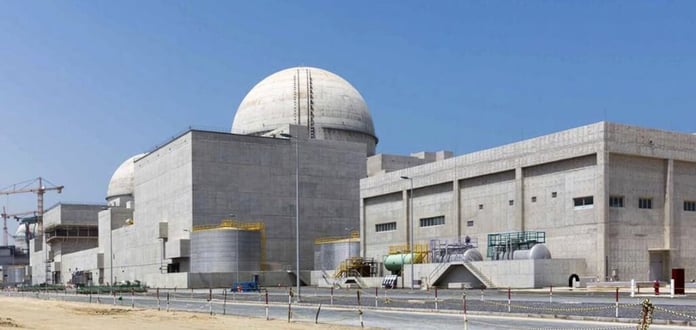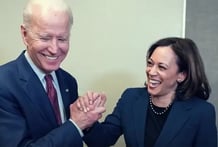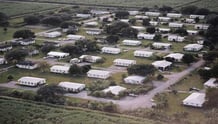
The United Arab Emirates announced Monday that it has given the green light to the start-up of the Barakah nuclear power plant, the first in the Arab world, the start of which has been postponed several times.
Located in the northwest of the country and about 200 km west of the capital Abu Dhabi, the Barakah power plant was built by a consortium led by Korea Electric Power Corporation at an estimated cost of $ 24.4 billion. (22.5 billion euros).
Why nuclear?
The federal state, made up of seven emirates, has a population of 9.3 million, of which around 80% are expatriates. The need for electricity is increasing due to the systematic use of air conditioning during scorching summers.
When fully operational, the four reactors will have a capacity of 5,600 megawatts or approximately 25% of the needs of the federation.
The fourth producer of OPEC (Organization of Petroleum Producing Countries), the federation has grown since the 1970s thanks to its wealth of fossil fuel sources, which has been reinforced by the recent discovery of a huge gas field between Dubai and Abu Dhabi.
But the country has also implemented a multi-billion dollar program to develop renewable energy, with the goal of producing 50% of its energy from clean sources by 2050.
“It is part of the desire of the Emirates to diversify their energy mix, reduce their dependence on fossil fuels and project the image of a regional leader in science and technology,” says a Gulf specialist requesting anonymity.
Safety first
The first of the four reactors at the Barakah power plant was to be commissioned at the end of 2017, but the start-up was postponed several times, with officials saying that it took more time to meet legal safety conditions.
The state-owned company Emirates Nuclear Energy Corp (ENEC) announced in December that the loading of nuclear fuel into the reactor is expected to take place in the first quarter of 2020.
UAE officials have repeatedly stated that their nuclear program is “peaceful” and that they have no intention of giving it a military component.
The country has hosted more than 40 international missions and inspections by the International Atomic Energy Agency (IAEA) and the World Association of Nuclear Operators (WANO) since 2010.
Regional tensions
The Barakah power station is located on the northwest coast of the Emirates, near the border of Saudi Arabia and Qatar, and is separated from Iran, opposite, by the waters of the Gulf. Allies of the United States and Saudi Arabia, the Emirates maintain tense relations with Qatar and Iran. Washington pursues a policy of “maximum pressure” against Tehran and accuses it of attacking oil tankers in the waters of the Gulf.
Saudis and Americans have accused Iran, who denies it, of being behind the September 2019 attack on major facilities of the oil giant Saudi Aramco. “The intensification of regional tensions increases the vulnerability of new energy infrastructure to the possibility of such attacks,” said the Gulf analyst.
Qatar, for its part, described the nuclear power plant as “a flagrant threat to regional peace and the environment”. Since June 2017, Doha has complained of the boycott imposed on it by Saudi Arabia and its allies, led by the United Arab Emirates.
Abu Dhabi responded by reiterating its commitment to “ensure the highest level of nuclear safety, security and non-proliferation”.











